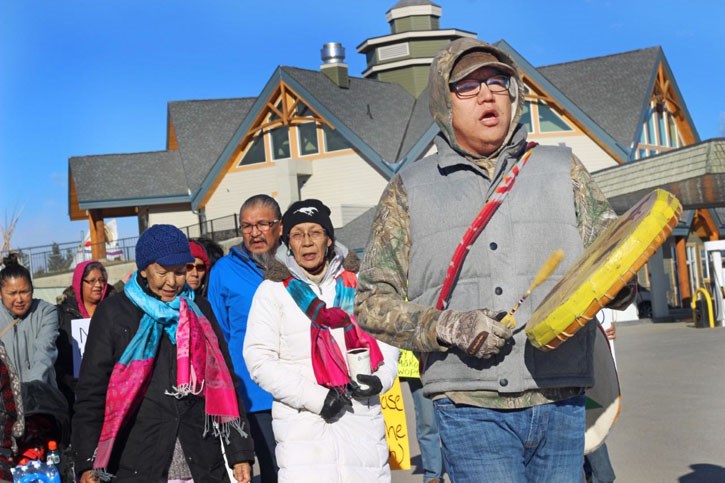STONEY NAKODA – A former provincial court judge, known throughout his career for advocating for better transparency and governance within the Stoney Nakoda First Nation said the most recent lawsuit against a Morley resident is yet one more “unfortunate” example of limiting public criticism of the government.
John Reilly, a retired judge who spent the bulk of his career handling cases from Morley residents in his Cochrane court room, said suing those who speak against the leadership has been a common tactic used to quash criticism.
“Without knowing exactly what Rachel is accused of saying, it is my experience that there is an effort by tribal governments to limit free speech,” Reilly said.
In 2010, Reilly was sued by former band chief David Bearspaw, who attempted to continue his tenure for another two years despite not being voted back in. Reilly made comments that questioned the legitimacy of Bearspaw’s government and ended up spending thousands of dollars defending himself. Bearspaw was ultimately judicially removed from office.
Morley resident Rachel Snow is being sued by the local government for $1 million over comments she made online that were critical of local chiefs and councils. It is not the first time this year the First Nation has taken legal action against a resident for comments they made online.
Chief Aaron Young has accused Snow of posting libelous comments on Facebook. The comments allegedly reference perceived mismanagement by the chiefs and councils concerning the Nation’s financials and businesses.
The Nation is made up of three bands, Chiniki, Bearspaw and Wesley. Snow is a member of the Wesley band.
On Sept. 25, Snow said she was hand-delivered a letter to “cease and desist” making defamatory comments online.
The letter came two weeks before a controversial land designation re-vote, which Snow was openly against. She even organized a protest one week before the vote.
Her concerns echoed others opposed to the ultimately failed land designation proposal, who felt the tribal council was keeping residents in the dark about the particulars of how the land would be developed. The same land designation was defeated in February 2018, but chiefs and councils brought it back citing residents were not informed enough the first time.
Two days prior to the second referendum, the Chiniki band filed the defamation suit.
In the statement of claim, Snow is accused of falsely calling the chiefs and councils liars and alleging they mismanaged tribal funds and properties.
Snow said she won’t be filing a counter suit because she doesn’t want more tribal funds used on the legal battle.
“They’re using band funds to sue me, they’re using the Chiniki people’s money to sue me,” Snow said. “We’re all part of Stoney Tribe, so it’s like one part of the whole, like the arm is suing the foot.”
“It doesn’t make sense to me to use people’s money to stop my voice.”
The Cochrane Eagle reached out multiple times to Chiniki councillor and regular spokesperson, Jordie Mark, for comment. He replied he would not comment as the matter is now before the court. When asked in general terms if he supports the notion of tribal governments suing a Nation member, there was no response.
Brian Evans, chief executive officer with Chiniki, confirmed there would be no comments from the plaintiffs until the legal proceedings have concluded.
Another outspoken Nation member was sued earlier this year. Greg Twoyoungmen was served by all 15 elected officials from the Wesley, Chiniki and Bearspaw bands, who are seeking $20,000 in damages in a lawsuit.
Twoyoungmen is accused of circulating a petition to end the three chief system currently in place. He also made comments on Facebook that described the land designation as a “land grab,” and he criticized the Nation leaders using inflammatory adjectives.




